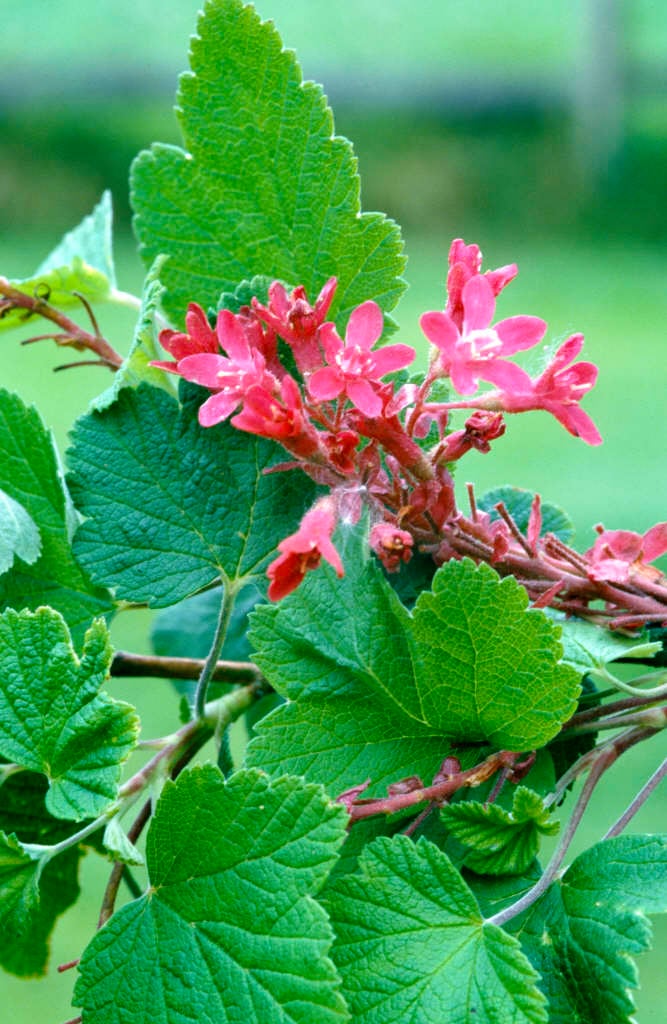Ribes sanguineum 'Pulborough Scarlet'
flowering currant 'Pulborough Scarlet'
A vigorous, deciduous shrub to about 3m tall, with lobed, aromatic dark green leaves, and drooping clusters of small, tubular, white-centred, deep crimson flowers, sometimes followed by small, bloomy black berries
Size
Ultimate height
1.5–2.5 metresTime to ultimate height
5–10 yearsUltimate spread
1.5–2.5 metresGrowing conditions
Moisture
Moist but well–drained, Well–drainedpH
Acid, Alkaline, NeutralColour & scent
| Stem | Flower | Foliage | Fruit | |
| Spring | Red | Green | ||
|---|---|---|---|---|
| Summer | Green | Black Blue | ||
| Autumn | Green | |||
| Winter |
Position
- Full sun
Aspect
North–facing or West–facing or South–facing or East–facing
Exposure
Exposed or Sheltered Hardiness
H6Botanical details
- Family
- Grossulariaceae
- Native to GB / Ireland
- No
- Foliage
- Deciduous
- Habit
- Bushy
- Genus
Ribes can be deciduous or evergreen shrubs, sometimes spiny, with simple, usually palmately lobed leaves and small tubular or bell-shaped, solitary or racemose flowers borne in spring or summer, followed by juicy, sometimes edible berries
- Name status
Accepted
How to grow
Cultivation
Easy to grow in moderately fertile well-drained soil in full sun. Useful for informal hedging
Propagation
Propagate by hardwood cuttings in winter
Suggested planting locations and garden types
- City and courtyard gardens
- Cottage and informal garden
- Wildlife gardens
- Hedging and screens
- Flower borders and beds
Pruning
Pruning group 2 or Pruning group 13 if wall-trained; trim hedges after flowering
Pests
May be susceptible to scale insects, gall mites, gall midge and aphids
Diseases
May be susceptible to currant leaf spot, powdery mildews, coral spot, rust diseases and sometimes honey fungus
Get involved
The RHS is the UK’s gardening charity, helping people and plants to grow - nurturing a healthier, happier world, one person and one plant at a time.
